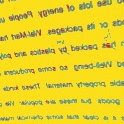links from eap2ww class chat
http://www.siu.edu/~cesl/students/cesltoday/csltdy.htmlCESL Today
http://www.siu.edu/~cesl/students/cesltoday/cesltoday2p2.htmlCESL Today article about Sabah, Malaysia
http://www.villami.com/blog/wp-content/uploads/2006/12/david-beckham-031.jpgpicture of Beckham
http://www.provenceweb.fr/e/alpmarit/antibes/antibes.htmAntibes, Provence, France (Tony)
http://www.uco.fr/Universite Catholique de l'Ouest, my son Justin's university, Angers, France
http://www.city.cleveland.oh.us/Cleveland, my hometown
http://travel.tourism.gov.my/consumer/main/default.aspMalaysia Tourism (Mike)
http://colona.govoffice.com/Calona, IL (Kasandra)
http://www.sabahtourism.com/Sabah Tourism (Mike)
http://www.congo-pages.org/kinshasa.htmKinshasa, Democratic Republic of Congo (Herve)
Labels: cesl, chat, personal
chat
My eap2ww (high-level writing) students are ahead of the game; their writing skills are in general very good. If you have any questions about their ability to put together an essay, click on their names in the template of the
class blog and take a look at how they construct essays, format them, link the references, and cite and refer to sources. They are about to finish their last project, a research paper, and put it on their weblog also, with the abstract on the class blog, linked to the paper. And, on top of it all, the class blog itself is full of interesting reading- scroll down, click on the topics in November alone- you won't be disappointed. This is fluency writing- we do it for ourselves, for each other, and for the newsletter.
Ah, but there's one more thing I want to teach you, I told them. I think everyone should be aware of chat, familiar with it, able to read quickly and respond appropriately. There are a lot of skills involved, including just being able to find the place, relate to the screen, and type into it. But it's also intensely fascinating, to me, to notice the number of expectations, symbol usages, and patterns that people bring to chat. These come out fairly quickly. It is also interesting to note how people relate to multiple conversations at once. And finally, I learn a lot from them, that I wouldn't learn otherwise. We could sit around and meet each other; some of this would come out just in talking. But we don't; it's a writing class.
In the first two days I've learned a number of things about my students, particularly about where they're from (I requested that this be a topic), but the only assignment is that they get up there once, in a chat space in
tapped in, an educational electronic space for which I'm infinitely grateful, and deliver to me a URL about their hometown. Some of these you will see below.
But I don't just do this for me. I know that they will be interested in seeing and perhaps checking out each others' hometowns, but what I really want is for them to just read and write in chat, use it, and notice the development of a chat community that might be different from what they are used to. It is my contention that education and business will both be moving into these places (if they haven't already done so); that skill in recognizing and using these communities (not to mention setting them up) will be useful to their future; and that I am probably in the best position to ease them into familiarity with this environment. I have set out the reasons I've done what I did, and made it a low-level assignment, not worth a whole lot of points; furthermore, I 've made it clear that they should do homework first.
Then, I've had a great time anyway. Let me just say, everyone should do it. I'll bring some examples; I'll demonstrate what happens and how people learn. It may take a while to put into words what exactly I'm teaching and how.
There is distinct resistance to what I'm doing. I suspect that it is this way (though I'm not sure). Chat has been pigeonholed by some cultures, as associated with pornography or the low cultural elements, the trollers, the scammers, etc. The problem with this is that in American culture (and therefore my own perception) there is a naive open-mindedness: my above statement that chat will be accepted, used and absorbed by the business and educational worlds was probably received with somewhat open-minded curiosity, as the hypothesis that it is. But in other cultures, once you're pigeonholed, it takes more than a shovel to dig you out. This is my best explanation. I'm not really sure; I'm not sure I can speak for them, or even that I really know how they feel. I can ask them, and even then I might not know how they really feel.
In an EAP2 class long ago I did chat, and then did a survey with my class, and found some of the same resistance. The survey is buried in
this very blog and was criticized once as being difficult to read. I may try to do a better job with the next one. The class that did this first, the pioneers (way back in 2006) lost
their blog in an blog-deletion accident this summer. The memory, however, lives on. Stay posted; you may see something like it soon.
Labels: cesl, chat, internet, writing
meme mia- my answers
First, I challenge, or beg, anyone, any serious blogger, to copy any or all of the below questions, answer any part of them, and then let me know when you do. The easiest to copy are in the next post down; they originally appeared in my
personal blog, and in this post, I'm answering them myself. Your answering them will help me sort out some questions in my own head about the art of blogging, but answering them myself will also help me. In fact, even the extended conversation I had with
my daughter before I even started, helped me quite a bit.
1. Do you find that blogging tends to make you frame your life experiences in the same way that carrying a camera tends to make you frame the things you see- it makes you look at everything, and say, I wonder if I could blog about that?Yes. I think this is something that all artists experience in any medium. You apply your life to that medium, in your mind, as you live. It used to bother me much more when I was an active photographer, than it does now, because I felt that I was actually
seeing things in boxes, as opposed to experiencing life, whereas now, I just feel like a distinct and pleasurable segment of my life-processing mechanisms entertains the possibility of writing about
everything I experience. Is that good? Good question. By the way I commend anyone who is actively involved in the art of packaging their life for public consumption. People will call you indulgent, or any number of other names, but I commend you.
2. Do you engineer your posts in any way to attract more audience? If so, how? Do you include words that will attract search engines? Do you write posts about hot, frequently-searched public persona?No. And it wasn't so much principle, as it was, I wrote in order to get my own thoughts organized, in order to improve my own writing, and to bend it in those ways seemed to change it and compromise it, so I didn't. But I think about it. Actually, I don't
know famous people, so I don't really have that option- and, it would definitely take time I don't have, to learn who they were well enough to do any good.
3. Do you check who has come to visit you? Do you notice what words they used to search and find you? Do you notice how long they actually spent on your site? Do you take the words they used, and use them again, or keep using them?Now this one is on my mind a lot. Yes, I check. Yes, I notice. No, up to now, I haven't cared very much whether they just click through, or whether they
read it. On this blog, I get a lot of return visitors from an obscure post long ago about
words that begin with vowels. Why? Because people search for them, I guess. So now I'm thinking, what else can I say about these words? Maybe I should make a list of these words? Maybe I should dredge my reservoir of linguistic knowledge to say something else meaningful...? So far I've resisted the temptation. But why? I want more visitors, right? But I want them to read it also, right? Should I be concerned about the
quality of traffic, the
kind of visitor?
4. You know how important pictures are when you open up a site. Do you choose your pictures in order to hold visitors, or do you just put in there whatever you can? Do you look for free pictures, take them yourself, or shamelessly steal them from Google Images like everyone else?Oh yes, I wrote the question- there is no underestimating the power of the pix. I mostly take the high road here, though I sure would like to jump in there with anything I could find. I'm actually more concerned that by putting images out there, and labelling them as what they are (it being a free country, I could call them whatever I want)- I'm basically contributing my personal images to the world's supply of free throwaway image. And the better I crop, manage and label, the more they'll be out there.
5. Do you feel bad about bumping people from your blogroll? How important is a template to you when you visit blogs? Do you really admire people who list thousands of blogs over there, or would you rather see someone who just has maybe ten or twelve best friends and relatives?Yes, I feel bad. I feel that at any given time, somebody could be passing through your blog
simply because they can get to another blog, however lonely or obscure, through yours. I never really saw it as reciprocating, although I have that kind of deal with students and others, sometimes just a personal thing. But others, I put on there, if I myself want to visit. And that's my only criterion. Then, they tend to stay there forever.
6. Do you really visit all those blogs you list under "daily reads" or "blogs i visit?" Do you read them? This seems like a herculean task. How much time can a person invest in being in the citizen's media, a regular?I
love going out strolling in the blogosphere. But I no longer have time. I barely read our daily newspaper; I barely keep up with my own field. So I'm looking at these blogrolls more as a nuisance now, like a garden that I don't have time to weed. And I"m especially irked that commercial interests buy old sites according to their links- buy them at warehouse prices, put junk on them, and leave you with a link to "commerce alley," or worse, to whatever they put there.
7. Has blogging changed your writing? Your perspective? Your alliances? Your likes/dislikes? Your politics? How has it affected the way you see things?writing- yes. perspective- yes. alliances- yes. likes/dislikes- maybe only slightly. politics- I doubt it. I feel like a media practitioner- more likely to wait, describe, present, less likely to judge. The forces that reshape the media are much larger than any one of us- but I could write a paragraph about any of these- or an essay, and would love to do so. But now it's late, sleep is precious, and I'm going to avail myself of it.
Thanks for your time. I look forward to your answers, if you choose to share them.
Labels: internet, personal, weblogs, writing
meme mia
These come from my
personal blog, but on that blog I use all small letters, so maybe nobody felt like copying them. Here I make them in copying form; next post, I'll answer them myself. I strongly encourage any and all serious bloggers to take a crack at them- and let me know when you do! Answer any or all of them. I'm genuinely curious and I'm working out my own answers.
1. Do you find that blogging tends to make you frame your life experiences in the same way that carrying a camera tends to make you frame the things you see- it makes you look at everything, and say, I wonder if I could blog about that?2. Do you engineer your posts in any way to attract more audience? If so, how? Do you include words that will attract search engines? Do you write posts about hot, frequently-searched public persona?3. Do you check who has come to visit you? Do you notice what words they used to search and find you? Do you notice how long they actually spent on your site? Do you take the words they used, and use them again, or keep using them?4. You know how important pictures are when you open up a site. Do you choose your pictures in order to hold visitors, or do you just put in there whatever you can? Do you look for free pictures, take them yourself, or shamelessly steal them from Google Images like everyone else?5. Do you feel bad about bumping people from your blogroll? How important is a template to you when you visit blogs? Do you really admire people who list thousands of blogs over there, or would you rather see someone who just has maybe ten or twelve best friends and relatives?6. Do you really visit all those blogs you list under "daily reads" or "blogs i visit?" do you read them? this seems like a herculean task. How much time can a person invest in being in the citizen's media, a regular?7. Has blogging changed your writing? Your perspective? Your alliances? Your likes/dislikes? Your politics? How has it affected the way you see things?Labels: internet, personal, weblogs, writing
scottish gaelic revisited
Think there's a chance? Here are
some old links from my old archive. Took me quite a while just to find them, hopefully not so long to use them.
Ciamar a tha sibh?
KIM-mer-uh-HAH-shiv? -How are you?
Tha gu math, tapadh leith
HAH-gu-MAH, TAH-pih-LEH-eev -I'm well, thanks!
Labels: endangered languages
tale of four surveys
Every time I have a NewsTalk class, I ask it to choose its own subject, read a bit about it, devise questions, and then go out and start with people, asking them their opinions about any given topic. Students, being eager to double up in a busy-workload term, often pick something at least tangentally related to what they are doing in their other classes; this explains why two of these have to do with business plans. But I also think they recognized the news value of both Wal-Mart and Starbucks, and wanted to know more about them. I freely encouraged them to go after whatever they wanted, as opposed to, say, going after what
Imight have wanted, like blogs, or, say, YouTube.
In any case, we got the topics, we went out and asked people questions that were at the same time straightforward, and edgy, and then we saw what happened. In one case people actually started a fight. You have no idea how controversial a topic like Wal-Mart can be. Here is a review of the surveys:
1. WalMart & Unions
Survey,
Survey results,
total group experience.
This group found a surprising diversity of opinions about WalMart; some were not aware at all of the union situation, or the underlying current of pro-union, anti-union sentiment swirling around the opening of WalMarts. This survey happened also at a time when a Kroger which had been a west-side staple for 20 or 30 years was closing, basically due to WalMart.
2. WalMart business plan:
Survey,
Survey results,
total impressions.
As I reread this group's work, I'm struck by its member's willingness to post without checking grammar or spelling. Many of its posts, also, ended up on the
main class weblog, which was the wrong one. Nevertheless the posts show authentic feelings about the situation, authentic findings, direct experience, and of course, unaltered grammar and spelling.
3. Starbucks business plan:
Survey,
Survey result,
total impressions.
This group's main finding was that midwesterners are largely ignorant of any west-coast brouhaha over Starbucks' faux environmentalism. To the midwest, Starbucks is a breath of fresh coffee, and it struck us as pricey maybe but was still a welcome addition to an otherwise drab set of choices. On top of which, the local campus outlet has really nice people, who treat internationals really well, by the way. This was the group that was really after the question, what if you're young, into business, and want to make a quick 20 mil? What's the secret?
4. Guns & Crime:
Survey,
Survey results,
total impressions.
This group was kind of floored by crime in general in the US; after about a half a term reading news headlines, they just couldn't get over how much guns were a part of our everyday news experience. Coming from countries like Japan and Saudi Arabia, they couldn't even see why we'd want to leave them legal for another minute. But they found
an interview with John Lott, Jr., or rather, maybe I found it for them, and this gave them a little of the convoluted reasoning that allows guns to remain in our blood-soaked modern world. Fortunately, for the most part, they saw right through it, and so did the people they talked to. But, to their surprise, people were
not more likely to want a gun when they moved to a city; on the contrary, guns are overall more useful, if you're in a place like this, and have wild animals chomping on your chickens every time you turn around. The fact is, American familiarity with guns, love & respect of guns, comes directly from the country and its overwhelmingly rural heritage. They're like peach pie and whipped cream- easy to see why you shouldn't have them anymore, but a little harder to give up.
One thing I like about the groups, that I didn't mention, is that they have a way of taking over both the website and the survey results; in two cases, they were presented very well, in such a way that I couldn't have done myself. It brings up a point about teaching: that sometimes the best results come from the most successful backing out, on the part of the teacher, leaving the remaining folks to do the work, learn, produce, and present the results. I wish every group could turn out like that!
By the way the upcoming
CESL Today may have some of the work of this interesting NewsTalk crowd, but if it doesn't, the online version will certainly be connected to their weblogs, thus ensuring that their work will not fade away entirely. To me, perhaps the most interesting aspect of these surveys is that they provide a literal snapshot of American culture, as seen by impartial observers, at a point in time, split over any given set of issues; the students truly have very few preconceived notions, nothing to copy from in writing their impressions, and thus give bold, straightforward though cautious accounts of the process of collecting opinions.
Labels: cesl, weblogs, writing
articles from here & there
Language learning & technology
Tetens, K. & Mulcrone, L. (2007, Nov. 16).
Language learning at MSU moves into the digital age. newsroom.msu.edu, Michigan State Univ.
http://www.newsroom.msu.edu/site/indexer/3250/content.htm, Accessed 11-07.
UVa Today. (2007, Nov. 15).
Engineering professor evangelizes 'Higher Ed 2.0' approach to teaching. Univ. of Virginia.
http://www.virginia.edu/uvatoday/newsRelease.php?id=3310. Accessed 11-07.
Internet
Wolf, C. (2007, Nov. 15).
The web fuels hate speech.
International Herald Tribune.
http://www.iht.com/articles/2007/11/15/opinion/edwolf.php. Accessed 11-07.
Hesse, M. (2007, Oct. 21).
In walks this avatar, with a thick, papery thing... Washington Post.
http://www.washingtonpost.com/wp-dyn/content/article/2007/10/19/AR2007101900628.html?sid=ST2007101901894. Accessed 11-07.
Second Life
McCoy, A. (2007, Nov. 11).
Forget the real world; Second Life is the place for me.
Pittsburgh Post-Gazette, Pittsburgh PA.
http://www.post-gazette.com/pg/07315/832353-96.stm. Accessed 11-07.
McCoy, A. (2007, Nov. 11).
What it takes to get a Second Life.
Pittsburgh Post-Gazette, Pittsburgh, PA.
http://www.post-gazette.com/pg/07315/832369-51.stm. Accessed 11-07.
Since I can't let it pass without mentioning, I used to deliver this same
Pittsburgh Post-Gazette, mornings, for 42 cents a week. Now I can't even find the cents mark on the keyboard.
Labels: bib, internet, second life
band performance
8:00 PM Friday November 16
Parsley & Sagebrush BandYellow Moon Cafe
Cobden IL
Go south on 51 about 12 miles
Turn right at sign (follow Cobden sign)
Upon arriving in town, find main street near the park and railroad tracks
It's right there!
See you there!
Labels: personal
teacher's day
I often complain about being too busy, which is true. But this year I missed Teacher's Day, which was some time in October, and am so late in pointing that out that it is now November, which is Be Thankful Month. November is actually my favorite month, as I am thankful, every day, for not only my job, but also my wife and family, my house, and even my beautiful little, no-count, one-horse jerkwater town. But along the lines of my first comment, I really am thankful for CESL, its environment, all these cool students, and my colleagues, and if you think you've got it tough around here, read the following, which really made me open my eyes.
Johnson, C. (2007, Oct. 30).
School's closure in Japan exposes tough times for foreign teachers. csmonitor.com, Christian Science Monitor. http://www.csmonitor.com/2007/1030/p04s01-woap.htm. Accessed 11-07/
Manyong, P. (2007, Oct. 14).
Cameroon: Misery and the Cameroonian teacher. allAfrica.com. http://allafrica.com/stories/200710150886.html. Accessed 11-07.
Have a good holiday season!
Labels: cesl, personal
text-to-speech
Lately I've been telling my writing students: If you have trouble reading, get the computer to read it to you. Actually I'm not sure exactly how this works, but I do know it's possible; the blind, for example, do it all the time. I believe that it is a very useful application of computers for several reasons. First, if you have good listening but poor reading, use your good listening to get used to hearing what you read; if you do them both, together, often enough, your reading will improve. Second, often we aren't testing reading alone (I as a writing teacher certainly am not), but it does make a difference, whether you just have a glancing awareness of the main points of an article, vs. whether you have a real understanding of all its main points. For one thing, you can get used to a more academic style of discourse, and you'll be more likely to be able to produce it eventually.
So, for those of you who are willing to give it a try, start here:
Gonzalez, D. (2007, September).
Text-to-Speech Applications Used in EFL Contexts to Enhance Pronunciation. TESL-EJ Online Journal. http://tesl-ej.org/ej42/int.html. Accessed 11-07.
This article is actually for teachers, specifically teachers who want to use text-to-speech with pronunciation classes, but it has a review of text-to-speech software, with links, that will surely get anyone started. Some text-to-speech applications are free, I believe, but I have not actually gotten in there to see how
any of them work.
Then, if you do, please let me know, which one works, which one is good; which is most accessible for students, etc. Somebody wrote in once, and commented, I thought on this very blog, about the subject, but I have been unable to find it.
Labels: cesl, internet, reading
fluency first
Last May, I borrowed and read an old book from the communicative heyday called
At the Point of Need, and wrote a small review of it at the link. It's worth rereading books from the old days because you forget where we've been and what was special about those ways of looking at things. In this case what has stayed in my mind is something that I didn't even write down, at the time I was recording my impressions of Marie Wilson-Nelson's book. One thing that stood out to me was that after a while, in her tutoring center, she didn't distinguish assignments that much; you had to write what you had to write; and furthermore, students were all on similar paths in terms of grammatical and organizational acquisition; they were on their way to fluency, some further along the path than others. But what the real obstacles were, to her students' and tutors' success, were dependence, low self-esteem, apathy, belief that it didn't matter, that one wouldn't need writing, or that one couldn't learn it. Of these,
dependence was by far the most crippling. Our system teaches dependence, she said, when it should be teaching independence.
Partly in response to this, I started doing fluency exercises in my
high-level class. I have lots of pedagogical justification for them; my students write endless paragraphs about whole numbers of interesting topics, which make fascinating reading and provide a window into their minds. But a lot of my reasons come directly from Wilson. I make no demands on their structure; my only demand is that they write quickly (and that they be in class to do it). I give them a choice about what they want to write about: three prompts, choose one. My assistant corrects the grammar and they publish them in good time.
The line-editing is a chore, but my assistant (and I) enjoy it. My justification for line-editing every word comes from an old teaching philosophy known as Community Learning (?)- where the idea was to just lower the pressure, help people communicate in real contexts, and gently change everything that is necessary to change in order to meet that purpose. I believe in this although I respect teachers who maintain that it's just not necessary or even possible to do this for all work. In any case, a second rationale is that the process of uploading, editing, finding things on blogs, tagging one's name, etc. are all in a sense a kind of fluency- technological fluency, fluency in the medium of writing. And a third possibly more important justification is that in the process of getting the community all in one place, looking at one set of paragraphs, which happen to speak to them and be very interesting, a lot of reading at a very appropriate level is taking place.
In the course of doing these fluency exercises several things become apparent. One is that very few of them are really afraid of the medium itself, although they have all kinds of interesting ways of dealing with things that in some cases I would have never imagined. I find out, for example, how many of them do double-space (on paper) entirely by hand, thus making a format that looks like a tornado hit a railroad track, when they put it on the blog. My point is this- that what they used to call "strategic competence" (Del Hymes 1971 ??), the mastery of the oral environment and the strategies to find what one needed to survive in it- that was missing in the people who had studied arcane (in time/on time) grammar points for fifteen years, but couldn't say "fine thank you" if you said "how are you?" -- is something that is not unique to the oral environment, but in fact equally applicable to the new media, such as blogs, chat, videocam, etc. This will be the basis of
a tesol presentation that I am working on and will give in April in New York City.
By the way my students also write full essays (click on their names in the template) and will eventually link to entire research papers on their own weblogs, with abstracts on the class weblogs. This is my pride and joy, hard to keep in mind, I must say, while I'm sweltering here, in a lab, giving a midterm, and grading a stack that is threatening to rise above the height of a university-grade stapler.
More later...
Labels: cesl, chat, internet, learning theory, sla, writing
feed the hungry, learn vocabulary
Here's a site that I think is good for everyone. If you can just keep learning vocabulary, and help people at the same time, what could be better? Try it. As far as I can tell, it's sincere.
in a third kind of way
I've been thinking a bit about teaching writing and how I do it, partly because I've been accepted at TESOL for a
demonstration that is primarily about teaching writing in both paper and online worlds simultaneously. This of course leads me to compare the two, mull them over, make little comments in class about paper versions ending up in the recycling bin, while "blog posts are forever," at least until you delete them.
But that's not what this post is about. I want to reflect on the process of teaching writing in general, all aspects of it, and one aspect has been weighing on me a little. Part of being a writing teacher (two classes, all day) is basically reading lots of essays in all your free time; reading essays sometimes until I fall asleep at night, my mind shuts off. My students come up to me trained to make their points in order and say First, Second, and Third...In fact I get a little sick of this, and wish they would just have the confidence in their writing to
know that they are able to communicate the order of their points without those words at the top of each paragraph. One term I actually said that to my class, and had the feeling that going against what a previous teacher had told them, was not going over all that well. Well, i said, what works at the lower levels, might not always serve you perfectly all the way through your writing journey. Even this didn't go over so well. Students, I could tell by their faces, felt like saying, well, is it right or is it wrong? Because if it's wrong I've just lost my respect for one of my teachers...
So now, I just tolerate it. It's ok. Let them use First, Second, and Third until they've seen enough essays without them to know, with confidence, that they could leave those tricks in their bags. Let them use a successful writing strategy, clear, blunt, orderly, until they genuinely, easily, effortlessly feel they can live without it. And until then, I may just have to read upwards of a hundred each First, Second, and Thirds.
But here's where it gets interesting. Some students actually become aware of the little -ly endings. Firstly, Secondly, and Thirdly are actually words. I can't imagine using them myself. I find myself thinking, why would anyone need to say, in a second kind of way? Not me. I read these with even more firmly clenched teeth-on-lips. Finally I snapped the other day, and said to a student: Why would you want to say, in a second kind of way? What's up with this?
It so happens that there are some people, who, when given the option of making something a little fancier, a little longer, a little more complicated, will take it, just on principle. And that's interesting. I think they may have a very rudimentary conception of the difference between second and secondly (I may not be correct myself)- but, they have chosen this option for a reason entirely within their own head. They surely didn't learn it from me!
It could be a grammatical issue- the feeling that an adverb goes here, so one should use the adverbial form- not knowing that
second will work just as well. This would actually be giving them some credit- it could come from hours of TOEFL study and learning that words like
fortunately/fortunate appear on the TOEFL at the beginning of the sentence, and the adverb is right. Possible?
Whatever it is, it provides a window into their learning/acquisition path. And, I suppose, into my twisted mind and waning patience, given an endless stack of essays...
Labels: cesl, sla, vocabulary, writing
update
I'm beginning to get to some of the things I've promised in the past:
1) Vocabulary project report- the post below this one. It happened, it's real, and though most papers done on it were on paper, and thus unavailable, the report below will carry on & record what happened.
2) CESL web report, on the
CESL Teachers' weblog; it's already outdated, since the Flickr disaster, but, it does tell about the status of CESL web activity.
3) Speaking of Flickr, still no response about why we'd be rendered "inactive"- whether it's simply failure to log in, or possibly hacking (it's not like nobody knows our password)...?? So, I've been removing Flickr's ghost windows, left when they render an account inactive. Some things on there, I'll really miss, as I'm not sure where or if they're backed up. I've successfully removed the most egregious of these on CESL, and now can turn to my own pages, including the one in the top corner of my own squares here.
4) More on TESOL 2008 a.s.a.p.- looks like I'm going, if at all possible...
5) Completed a set of twelve short stories, all about crime, all using a certain "well-known, big-box, discount retail chain."
Enjoy!Labels: cesl, siuc
vocabulary project
I thought I'd get down a record of my version of this, a project we in EAP1 did as part of a unit on stress, health, effects of stress on one's life, stress management, etc. We'd gotten to talking of the TOEFL and how stressful it was, and I'd mentioned to them that I'd noticed after years of giving vocabulary quizzes alongside oral presentations, that students' vocabulary scores dipped on days of their own oral presentations.
I was thinking in terms of the fact that whatever words I'd sent them home with, they had to brush up on them before the quiz; that, in many cases, their ability to use short-term memory was therefore upset to some degree by the high stress of the oral presentation. In EAP1 we weren't studying vocabulary discreetly; there was too much to do. Instead, we assumed that they had a high level of reading and were taking care of it themselves. Part of it is this assumption I carry along from my communicative days: that exposure is really enough; that students will figure it out, if given enough exposure and use. I will deal with this hypothesis below. One side of me never quite believed this. Nevertheless, EAP1 is very busy with reading reaction journals, unit exams, article presentations, and a number of other things, so I just hadn't overloaded them with vocabulary quizzes which, by the way, students invariably spend a lot of time studying for, and never complain about their inherent value. I figured it would be a good opportunity to discuss how (and if) they were actually acquiring these words; it would be a good review of the term's concepts; and, we could study if stress actually interfered with short-term memory.
I set up a simple system that turned out to be not quite as easy to explain as I'd hoped. I made two batches of 40 words, and divided them each into two. I divided the students into two groups- the Odds-Evens and the Evens-Odds. First, I gave the odds 1-40 to the Odds-evens on TUE.; the evens 1-40 to the Evens-Odds. On WED. I gave 41-80 odds to the Odds-evens and 41-80 evens to the Evens-odds. Notice that in the first two days I'm giving the Odds-evens ALL the odds and the Evens-odds ALL the evens. I used the results of these two days to take ALL the odds and make two equally difficult tests from them, and did the same with the evens. In other words, the Evens-odds group normalized the evens words, so that I could make two equally difficult tests for the Odds-evens, and the odds-evens did the same for the 40 odd words, so that I could make two equally difficult tests for the Evens-odds. Both groups took supposedly equally difficult quizzes on THU and FRI, the two days that counted; FRI would be a high-stress day, having a unit test, and supposedly the high stress of FRI would show up in scores being slightly lower on FRI, where stress had presumably interfered with their short-term memory.
The quizzes took place in week six, toward the end of unit 2, but most of the words came from unit 1 and the first part of the class, weeks 1-3, so for the most part were not part of what they were studying for the unit 2 exam that Friday. They were given lists of twenty words each night, MON, TUE, WED, & THUR. and told to study them for the following day. They were also told to study each list the same amount of time, and in the same way. They were also told that the scores would not count as part of their class grade, except as participation points, since their studying was being controlled. They were, however, told that the vocabulary was useful; that they should know it; and that, in general, their ability to pick up and hold the vocabulary was a crucial skill. The quizzes asked only for the meaning; it did not test grammatical knowledge or ability to use the words. The distractors were simple and were not intended to confuse anyone. The two groups of students also were intended to be equally divided, by reading score, with the intention of splitting up language groups as evenly as possible also, so that each group would have roughly equal numbers of each language group. With only fifteen students, one group had eight while the other had seven.
One clear variable among the 80 words was exposure; words were distributed also so that words from chapter one, for example, went into both even and odd words; and so that, in general, words that they had seen five weeks ago were equally distributed, as were words they had seen four weeks ago, and a few words they had never seen, to my knowledge. I knew that they had three other classes besides mine, and made no attempt to find out which words had been covered or even tested in those; at the same time, I figured that as a cohesive class each member of the class at least probably had roughly the same exposure to each word as each other member. There were words on there that were repeated frequently in my own class, like
risks and
likely; words that appeared in only one reading and were most likely never seen again, like
ergonomics. I tried to distribute these evenly between the even and odd lists.
So we took the quizzes, and noticed, in the process, that several things surprised us. Our scores came out like this:
Odds-Evens (first two scores are TUE/WED, then THU/FRI
A 17/17. 20/11
B 7/5, 9/10
C 11/13, 10/19
D 6/15, 9/9
E 3/3, 4/7
F 19/17, 18/19
G 16/16, 16/15
H 4/8, 5/9
Even-Odds
J 7/5, 12/12
K 11/13, 14/10
L 14/8, 5/3
M 18/19, 9/5
N 18/19, 15/20
O 16/17, 16/18
P 13/13, 11/16
In the process of taking the quiz we noticed that for a variety of unrelated reasons WED. was a very highly stressful day for the class also. The stressful days did not seem to lower their collective scores much, however, except in isolated cases like students A and L. One student, N, had maintained that stress would make scores go up, and it did make hers go up. One, G, got scores that I would have expected in an ideal trial, which showed a drop on the last day, due to an entirely new word or two being not learned well, because the stress of the unit exam interfered. We had concluded, from our reading, that stress could not make us unlearn something we had successfully committed to memory already; it could, however, interfere with the process of committing routine things to memory. And we had further learned that deep, traumatic, unexpected stress was far more likely to do this than the expected, normal stress of a difficult but normal reading exam. Looking closely at the numbers, however, we had to conclude that our hypothesis, that stress would interfere with memory, had not really panned out very well or very clearly.
Some students admitted to not studying equally all four nights. Others did so poorly on all tests that I had to question whether they had in fact ever read anything, much less study the four lists of words. How could you sit in this class for six weeks, I asked them in my mind, and not know words like
threaten or
exceed? They had no good reason to subvert the project, yet some students, most notably E, H, D and possibly L did so poorly as to make me question whether they were able to read or understand the distractors, let alone the words. It was, in fact, possible that they couldn't. More common, though, were students like F, G, N, O and P, who were fairly good at picking up words all along, and missed some for somewhat random reasons, unrelated to the stress of WED & FRI's papers and exams.
The students stared at their results in order to write quantitative analysis reports that included hypothesis, method, results and conclusion; we will never see these, since they didn't make it onto the weblogs. They did, however, comment a little on the process of studying vocabulary and on what happened during the project. Those comments I list below.
A related question that I reallly was curious about was to what degree certain amounts of exposure would ensure their knowing certain words, absent any kind of quizzes or recycling efforts on my part, short of a single list appearing a night before a quiz. Various practitioners have maintained that exposure alone is enough; if that were the case, I would not have to even give them the lists on the night before, and they should get reasonably good scores on a quiz that asks only to choose the word with the right meaning. I studied the scores for the words themselves and didn't find much of a pattern. They did well on words like
obesity and
aroused that seemed intensely personal; they did poorly on words like
stoic,
ergonomics and
posture, that very likely weren't seen much outside of the particular readings they were in. For a subculture of the class, exposure didn't matter; they clearly hadn't acquired much of anything, and their results, if anything, threw off the validity of any statistics I could have mustered.
It's ironic that you could get
exposure only to words, without ever enrolling in an intensive language program, and if this were enough, presumably you would then not need classes, because, having acquired everything directly, grammar, style, idioms etc. would fall into place. In other words our students
pay for the stress of regular well-made tests/quizzes and the feedback that comes with them, and thus are signing up for the voluntary stress of not only the unit exam, but the vocabulary quizzes or whatever other evaluative task I put in front of them. Overall, I did not see anything that would lend me to change my basic approach to vocabulary, which is as follows:
-Vocabulary is extremely important, as a base of all the skills; without vocabulary, for example, its pointless for a student to work on reading skills. Vocabulary is also the single best measurement of overall success. It is well borne out by experience, that students like F, N and O do better on the TOEFL than their counterparts who have simply not bothered to pick up the vocabulary from the units.
-Most students, though not all, need a system to actively commit words and their meanings to memory. Those systems in my experience are of several kinds (besides the student with essentially no system)- marking native language on the textbook, above the new word; putting the word and its translation on a separate piece of paper; putting the word, Eng. definition & Eng. sentence on paper (this is the system I recommend); and, marking up one's bilingual dictionary. There may be other systems that I am not aware of. Students whose TOEFL scores stagnate at about 420-450 (paper-based, institutional) very frequently have no system or a very rudimentary system. They also frequently translate every word, run out of time on the reading section, and trip up on word forms in the grammar section, due to living in their native language and not clearly having and English-use, English-sense of sentences. A student's vocabulary system should teach the student how NOT to translate, how to stay in English and use the word in its English environment.
-Exposure is crucial to learning, as our minds are inherently utilitarian, and each student is more likely to remember anything that he/she is convinced he/she will need repeatedly. One student one time told me that he learned vocabulary by looking up words in a bilingual dictionary, but marking the word every time he did; therefore, when a word got enough marks, he'd get mad and finally determine within himself to learn it. After years of stewing over that suggestion, I've noticed that it seems to have worked for several reasons, one being that a student has to build a personal relationship almost, with each word, determining to learn all parts of it, its grammar, its sound, its meaning, the environments one is likely to see it in. And that personal relationship can
start with its relationship to the corresponding word in one's native language; we all know that L1 and L2 words don't always correspond exactly, semantically or grammatically, and that's part of the problem. But for a student who already understands the world through L1, it's hard to avoid funnelling knowledge through it, at least at first. The trick is successful weaning oneself away from L1- I always ask the student: how are you doing that? Is it working? Are you mastering these words successfully, in terms of being able to
use them successfully when you need to?
Thus the book closes on Vocabulary project, 075, CESL EAP1.
Related posts (from EAP1 students, during 075):
Trouble with learning vocabulary (Corina)
This makes it difficult for you to remember (Renzhi)
Studying vocabulary (Herve)
Learning Vocabulary! (Patrick)
The best way to study vocabulary (Corina)
The best way to study vocabulary (Jasim)
The best way to study vocabulary (Renzhi)
Studying vocabulary from shows (Yalanda)
Fluency Ex. #4 (Tez)
Fluency Ex. #4 (Mohammed A.)
Fluency Ex. #4 (David)
Fluency Ex. #4 (Moon)
Fluency Ex. #4 (Mohammed R.)
Labels: cesl, learning theory, reading, vocabulary
flickr disaster
It is now pretty well established that Flickr, the free photo-sharing service, eliminated about 190 of our photos because we were "inactive"- which I presume to mean, we had not been logging in or out, adding photos, or whatever. We had, however, been actually
using the photos, linking to them, putting them on the weblogs, faculty directory, etc., so now we have a lot of holes where pictures used to be.
What's frustrating about this is both lack of warning (the e-mail box was empty) and, lack of clearly documentable evidence that we were somehow negligent (which, by the way, I wouldn't doubt, we being as busy as we are). The e-mail box was empty of any such warning. Flickr forums showed how some people had apparently been burned in a similar way, but didn't ever, in responses to these people, give any reason, or any proof that they had been warned of this. I may be missing something, but it seems to be a purge carried out by a machine that assumes that we, as non-logger-inners, no longer exist.
I've written to them, of course, asking that the reinstate those photos, many of which are quite valuable to us. Meanwhile, we've learned our lesson. We're backing up
everything. Soon a web report will be published that will show where all our photos are- what a trial it is, the consequences of having photos on every table. The advantage of Flickr was that it saved large-bundle pictures and gave them a home which could hold a caption, which we nevertheless rarely used. Now, we are left with memories, ghost-squares in frames, archive-scooping.
Aach.
Labels: cesl, internet


















































